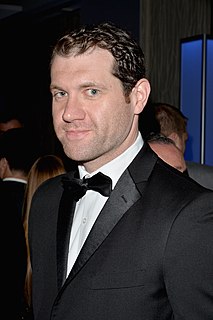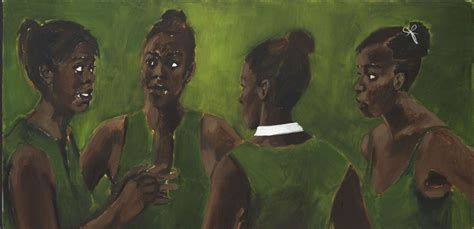A Quote by Peter Guber
Think about all the great leaders. Think about Obama. Think about Clinton. Think about Nelson Mandela. Think about all the people that we know who are very successful in business, in politics and religion. What are they? They tell purposeful stories. They move people to action by aiming at the heart.
Related Quotes
Think about Kennedy. Think about Carter. Think about Clinton. Think about Obama. They've all been in their forties and from outside Washington, or underdogs in one way or another. I just think that Americans are looking everywhere, saying, 'Hey, show me some authenticity. Show me somebody who's practical. Show me people who run things.'
People think, for some reason, that I don't care about creativity and art, or helping people. So I would say that the biggest misconception is, when you think about me, when you think about my name, I don't want you to think about design or clothes or music. I want you to think about a person that's just trying to help people.
I don't have an opinion about whether or not politics should appear more in fiction or not, generally. I think politics are a part of life, but a part of life that most people don't think about very much, most of the time. Or, people think about it superficially and they talk about it superficially because they don't know very much.
I have a great affection for people who are intellectually engaged with the world, and who don't treat everything superficially. And I think, when people talk about nerdiness, what they're really talking about is smart people who who are trying to think hard about the world. And I don't think that's an insult, I think that's a great thing.
Many people don’t realize the extent to which stories influence our behavior and even shape our culture. Think about how Bible stories teach the fundamentals of religion and rules of conduct. Think of the fables and parables that molded your values. Think of how stories about your national, cultural or family history have shaped your attitudes about yourself and others.
When people ask about the aspect of race in the work, they are looking for very simple or easy answers. Part of it is when you think other people are so different than yourself, you imagine that their thoughts aren't the same. When I think about thought, I think about how much there is that is common.
Thinking about making a love story without music was really frightening, Sciamma admitted. Because every love story we know, we think about 'Titanic' we think about the music, we think about 'Gone with the Wind' we think about the music, we think about 'E.T.' we think about the music, and every love story has its own tune, 'That's our song.'
I think when people think of music from coming from Oklahoma, they think of Toby Keith or even Garth Brooks or even Woody Guthrie. People think, "Why do we have to just be about the Bible and about football? Why can't we be about something like the Flaming Lips?" And I salute them! I say, "Well, that's great if you want that."




































